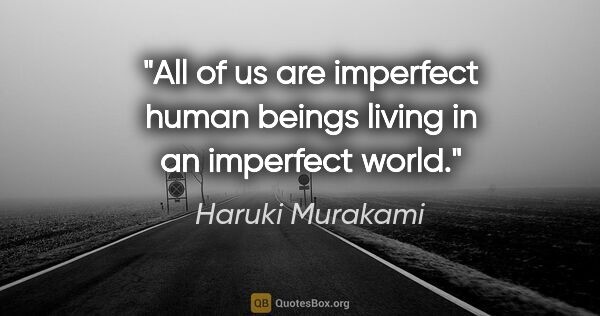Lives Quotes (page 421)
But you are a great sinner, that's true," he added almost solemnly, and your worst sin is that you have destroyed and betrayed yourself for nothing. Isn't that fearful? Isn't it fearful that you are living in this filth which you loathe so, and at the same time you know yourself (you've only to open your eyes) that you are not helping anyone by it, not saving anyone from anything?
Fyodor Dostoevsky
Money has become the grand test of virtue. By this test beggars fail, and for this they are despised. If one could earn even ten pounds a week at begging, it would become a respectable profession immediately. A beggar, looked at realistically, is simply a businessman, getting his living, like other businessmen, in the way that comes to hand. He has not, more than most modem people, sold his honour; he has merely made the mistake of choosing a trade at which it is impossible to grow rich.
George Orwell
Out of the shadows of legend I begin a little to understand the marvel of the trees, I think. I have lived to see strange days. Long we have tended our beasts and our fields, built our houses, wrought our tools, or ridden away to help in the wars of Minas Tirith. And that we called the life of Men, the way of the world. We cared little for what lay beyond the borders of our land. Songs we have that tell of these things, but we are forgetting them, teaching them only to children, as a careless...
J. R. R. Tolkien
You're obliged to pretend respect for people and institutions you find absurd. You live attached in a cowardly fashion to moral and social conventions you despise, condemn, and know lack all foundation. It is that permanent contradiction between your ideas and desires and all the dead formalities and vain pretenses of your civilization which makes you sad, troubled and unbalanced. In that intolerable conflict you lose all joy of life and feeling of personality, because at every moment they...
Octave Mirbeau
Apart from the pleasure of looking at her and listening to her--of enjoying in her what others less discriminatingly but as liberally appreciated--he had the sense, between himself and her, of a kind of free-masonry of precocious tolerance and irony. They had both, in early youth, taken the measure of the world they happened to live in: they knew just what it was worth to them and for what reasons, and the community of these reasons lent to their intimacy its last exquisite touch.
Edith Wharton



